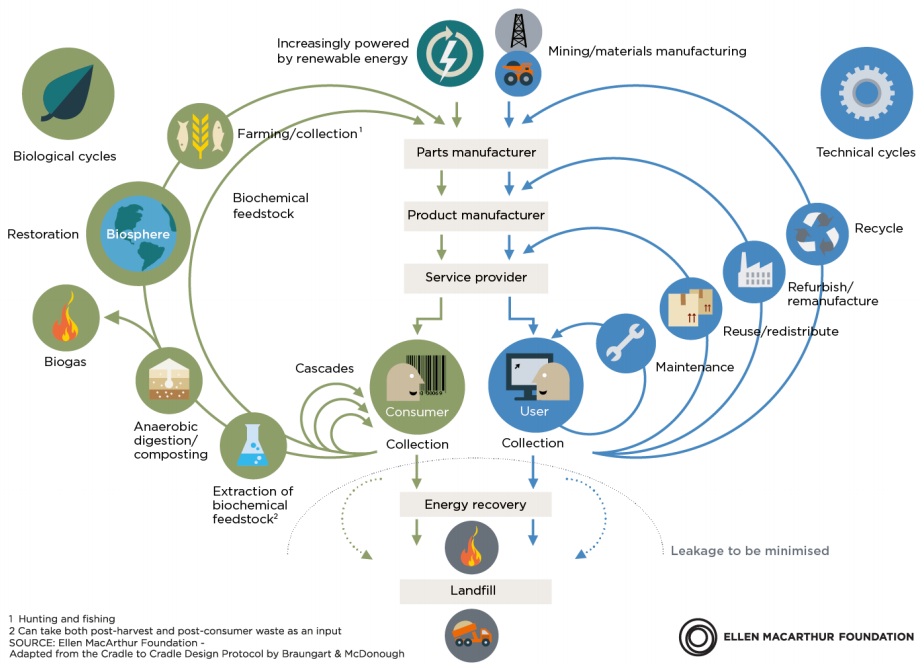| Circular economy (policy interventions) |
| Brief Description |
Governments and businesses are in the opportunity to make policies that able further progress towards a circular economy. A circular economy seeks to rebuild capital, whether this is financial, manufactured, human, social or natural. This industrial economy promotes greater resource productivity aiming to reduce waste and avoid pollution by design. Eventually, this offers businesses and governments a clear opportunity for long-term growth that is less dependent on cheap materials and energy, and simultaneously restore and regenerate natural capital, which benefits overall health and well-being. This contrasts to a linear economy which has a ‘take, make, dispose’ model of production. Two types of material flow are relevant for circular economy; biological materials and technical materials. In biological cycles, non-toxic materials are restored into the biosphere while rebuilding natural capital, after being cascaded into different applications. In technical cycles, products, components, and materials are restored into the market at the highest possible quality and for as long as possible, through repair and maintenance, reuse, refurbishment, remanufacture and ultimately recycling. |
| Image |
 |
| European Country/Countries |
Finland, Netherlands, Sweden |
| Field |
Living/Green spaces: Urban (food) gardens, Living/Green spaces: Improving availability, quality and use, Living/Green spaces: Other, Energy efficient housing: Energy efficiency of buildings, Energy efficient housing: Energy saving behaviors, Energy efficient housing: Other, Consuming: Sustainable Production, Consuming: Healthy and Sustainable Consumption, Consuming: Healthy Consumption, Consuming: Recovery and redistribution of excess food, Consuming: Other, Moving: Cycling, Moving: Walking, Moving: Public Transportation, Moving: Other |
| Type |
Policy |
| Impact |
Health, Environmental sustainability |
| Status |
Ongoing |
| Target Group |
General population, business people & policy makers |
| Evaluation |
Yes |
| Level |
Regional, National, European |
| INHERIT Perspective |
This policy has been chosen for inclusion because of it has the potential of major impact of sustainability of the environment, in the domains of living, consuming and moving. By reducing waste & transport and reusing components, it has the potential to deliver a healthier environment and, more widely, to contribute to global environmental sustainability. |
| Detailed description PDF filename |
Download file |
| Relevant links |
https://www.ellenmacarthurfoundation.org/publications |
| Contact |
https://www.ellenmacarthurfoundation.org/ |

